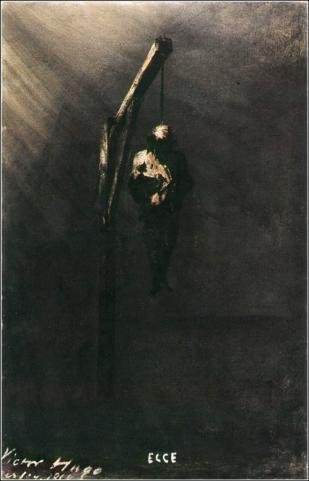It's not a baffling example of cranial compartmentalisation that allows me to justify it, it's just a belief in the fundamental rules that apply to our criminal legal system.
Every one is innocent until proven guilty. This is quite a lofty fall back line and I would be quite naive if I said that this alone makes it easy to defend someone no mater how guilty they may be. What it does reinforce in my mind is that every body deserves their day in court and everything that this entails. There are prosecutors who, by their role alone are seeking to prove the accused guilty beyond reasonable doubt by any legal means available to them. It's for this reason that an equally vigorous and diligent defense should be provided to the accused. With the two sides presenting the most favourable of arguments to their conclusion of innocence or guilt, it is hoped that the jury can decide whether reasonable doubt exists or not. It goes further than this however, and involves keeping close scrutiny on the opposing sides conduct during the trial and ensuring that the accused exercises all of the rights that are available to them.
It might seem manipulative and callous to suggest to a man arrested by police as a suspect for murder to give no comment. I can understand that such advice seems to be perverting the course of justice, but the truth is, the justice is meant for a courtroom, and to make admissions to police upon arrest almost always makes things extremely difficult in the long run. It's not manipulative to exercise your right to silence, in fact it's prudent. In my brief experience with the criminal law, police have been known to use a laundry list of manipulative tactics to get a suspect to talk. They deprive the suspect of sleep, they badger the suspect with questions, threats and promises. The whole experience is exhausting and in such a high stress situation you might be end up saying anything. There have been times in my life where I have said something under far less pressure only for that poorly thought out comment to come back to haunt me.
This is why defense lawyers exist, to act as a dedicated and committed advocates in the interests of the accused when so much power and resources is weighted against their demise.
What amazes me is that this basic mechanic of our legal system still receives strong criticism. With the recent media frenzy regarding Josef Fritzl and his incestuous relationship with his daughter that he imprisoned in a dungeon, this criticism has reached international levels. The defense lawyer of Fritzl has suggested he will plead insanity if one of the two doctors who assess him find that he is mentally unable to stand trial. I don't find this at all unjust or despicable, but a basic right that is recognised on an international humanitarian level. Yet still people call for blood, the executions of both Fritzl and his attorney, Rudolf Mayer, on the basis that "any man who can defend such an evil monster deserves to join him on the gallows."
I've written before about the use of the word "evil" and the refusal to really understand the underlying causes that surround tragedies like these. So often it seems that people get carried away by their emotions and forget that someone like Fritzl is still human and deserves equal consideration before the law.
No matter how hard you squint your eyes, pull the blankets up above your head in fear, the boogeyman exists only in your imagination. There are no inhuman beings or incomprehensible acts. Beneath every human action there is a human thought or feeling. Some of these are failings as we are by no means perfect, but it is acknowledgeing these inherently human faults that is crucially important to any opposition to the death penalty. Everything is capable of being understood, we just need to look beneath the surface rather than casting stones.
Quote of the day:
"There is an explanation for every deed, for every criminal act."
- Rudolf Mayer

No comments:
Post a Comment